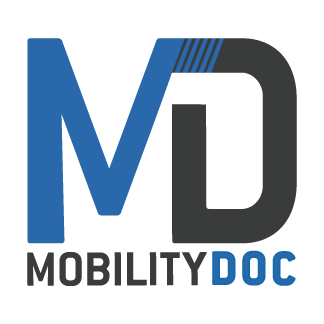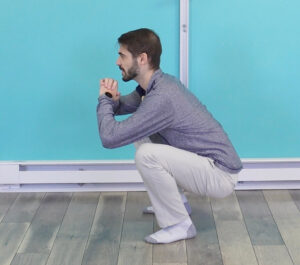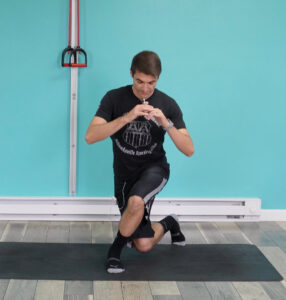You bought a muscle scraper—congrats! But now what? Believe it or not, this is something we hear all the time at Mobility-Doc. We love that our patients are taking muscle recovery and long-term movement health into their own hands. But there’s a learning curve, and that’s where we come in.
Today, Dr. Chloe is walking you through a full lower body muscle scraping routine. We’ll go over how to use a muscle scraper, our favorite tools, and detailed step-by-step guidance for your quads, hamstrings, IT band, calves, and shins.
If you are new to muscle scraping and want a more detailed holistic picture – check out this blog. This blog gives you the full picture including: warm up, stretching, scraping, and strengthening. This is perfect for the person looking not just to muscle scrape for muscle recovery but use it for rehabilitation post injury!
Now let’s get into it! We’re going to give you multiple ways to target the quads, hamstrings, IT band, calf, and shins. But before that, let’s go over some general principles.

Before You Start: Know Your Muscles
Position matters.
- Relaxed muscles allow you to get into the deeper layers of fascia.
- Stretched muscles (like your quad when you’re sitting on your heels) gives you better access to the outer layers.
Both have value. Choose based on what your body needs—or cycle through both.
Which Muscle Scraper Is Right For Me?
We’ve tested just about everything. Our favorite? Sidekick Tools.
- Top pick: Sidekick Echo
- Runner-up: Sidekick Swerve
Metal tools give you feedback. You’ll feel subtle vibrations through the tool when you hit areas of sticky fascia. Plus, the weight helps you apply consistent pressure.
We love Sidekick tools because of their “S” shape. You get access to both concave and convex edges, plus tapered ends for smaller areas.
General Tips
- Always use an emollient to reduce skin friction.
- Hold your scraper at a 45-degree angle to the skin.
- Avoid scraping directly over bones—it’s not helpful (and definitely not comfortable).
How To Muscle Scrape The Quad:


We’re going to show you three great positions to muscle scrape your quads. Each one has a purpose. Choose based on what feels right for your body—or cycle through all three.
- Seated with Legs Out (Relaxed Position) This is the most relaxed setup. Sit with your legs stretched out in front of you. This allows the quad to fully relax.
- Start at the knee and scrape up toward the hip.
- Use the concave side of the scraper to really hug the muscle.
- Cover the inner, center, and outer quad.
- When you’re ready for deeper work, flip to the convex side.
- Seated on Your Heels (Stretched Quad Position) Sit back on your heels so your knees are bent and your hips are resting on your feet.
- This puts the quads in a stretched position—perfect for getting close to the knee, especially if you’ve had knee irritation.
- Scrape upward toward your hips in each section: inner, middle, outer.
- Upright on Knees (Hips Extended) This position is great to access the top of the quad.
- Keep your torso tall and your hips extended.
- This is great for addressing tension near the hip.
- Again, scrape in three lines: inner, center, and outer.

How To Muscle Scrape the Hamstring
Standing allows you to fully access the muscle.
- Standing Hinged This one takes balance but lets you access the full length of the hamstring.
- Stand on feet and hinge slightly at the hips.
- Reach back and scrape along the hamstring using both hands for control.

How To Muscle Scrape the IT Band

Seated Bent Knee Use the seated bent knee position. This time reach one hand under and through to access the side of your thigh.
- Focus directly on the outer thigh. This is where the hamstring and quad meet.
- Follow the same scraping pattern: start near the knee and move up toward the hip.
How To Muscle Scrape the Calf


Bent Knee, Foot Flat (Relaxed Calf) Sit with your knee bent and foot flat on the floor.
- This allows your calf to stay relaxed.
- Scrape from your Achilles up toward the back of your knee.
Add Foot Flexion To switch things up, flex your foot and keep it active during scraping.
- This changes how the muscle feels and allows you to get into different layers.
How To Muscle Scrape the Shin
This one is all about the anterior tibialis—the muscle on the front of your shin that gets worked from running, walking, or even just standing a lot.

Bent Knee Stay in the same position you used for the calf.
- This is a very bony area so be careful!
- Scrape from the ankle up toward the knee.
- Use short, controlled strokes and be mindful of pressure. This area can be sensitive!
- Use the pointy end of your scraper to get precise towards the top of the knee.
Across all muscle groups:
- Always scrape towards the center of your body.
- Start with the concave side of the tool to hug the muscle.
- Use the convex side when you want to dig in deeper.
- Cover the inner, center, and outer lines of the muscle.
If you’ve made it this far—nice work! Keep listening to your body, and don’t be afraid to adjust your position based on what you feel. Muscle scraping is a skill that gets better with practice. Consistency wins.
Need a visual guide? Check out our demo video with Dr. Chloe where we walk through this whole routine in real time! There are even more bonus tips in the video!!




